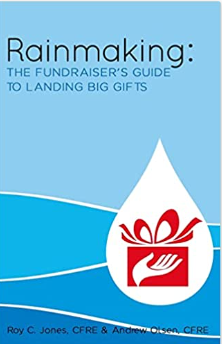Gratitude shouldn’t just be an occasional reaction to an especially generous gift—it should be a way of life. As Fit Fundraisers, gratitude must be more than a simple response; it should be a daily habit, intentionally woven into every interaction. Research on habit formation and neurocoaching shows that small, consistent acts of gratitude create lasting change, strengthening personal relationships and professional success. Science confirms what many of us have experienced firsthand—practicing gratitude enhances donor connections and increases our joy and fulfillment in our work.
If you want to transform your fundraising efforts and overall satisfaction in work and life, keep reading!
The Science of Gratitude
Much of the recent research on gratitude comes from the study of neurocoaching, a coaching approach tailored to how our brains work. One of its core principles is the power of attention—what we focus on grows. This isn’t just wishful thinking; Scripture reinforces this principle. In Philippians 4:8, Paul instructs believers to focus on good and praiseworthy things. Applying this to donor interactions, focusing on gratitude activates neuroplasticity, rewiring the brain toward more positivity, trust, and deeper relationships.
Studies show that gratitude increases the brain’s release of dopamine and serotonin, reinforcing behaviors that make both the giver and recipient feel valued (Zahn et al., 2014). The Emmons Gratitude Study further proves the transformative power of gratitude. Participants who kept gratitude journals reported:
- Greater optimism and overall life satisfaction,
- Increased energy and enthusiasm, and
- Higher levels of goal attainment compared to those who focused on hassles.
Gratitude and Giving
For Fit Fundraisers, gratitude influences generosity. Participants in gratitude studies were more likely to help others by offering emotional support or assistance. This confirms that donors who feel appreciated don’t just give more—they also become more engaged in your mission.
From a Christian leadership perspective, gratitude aligns with biblical stewardship and generosity principles. Scripture frequently emphasizes thanksgiving, not as a reactive emotion but as an active discipline that shapes the heart and mind (1 Thessalonians 5:18). Christian coaches and fundraisers alike benefit from cultivating gratitude as a daily practice.
Practical Ways to Make Gratitude a Habit in Donor Relations
1. Practice Presence and Appreciation
The concept of “practicing presence,” often used in coaching, applies to donor interactions. When fundraisers are fully present—listening attentively and acknowledging donors’ passions—they demonstrate relational gratitude rather than transactional appreciation.
2. Tie Gratitude to the Donor’s Identity
Research on motivational interviewing highlights the importance of reinforcing positive self-perceptions to encourage individuals to act in alignment with their best selves. It’s both effective and kind to encourage donors’ self-perception as generous individuals. Instead of simply thanking them for their gifts, frame their support as part of their identity:
“Your generosity is making a lasting impact, and I can see how much you care about this cause.”
This strengthens their connection to the mission and shows appreciation not just for their donation but for who they are.
3. Make Donor Stewardship Personal
Gratitude should match the donor’s personality and giving style. Different individuals respond to different forms of affirmation. Some donors appreciate public recognition, while others prefer private, heartfelt messages. Take the time to learn what makes each donor feel most valued.
4. Build Gratitude into Team Culture
The best way to sustain a habit of gratitude is to make it a team-wide effort. Organizations that integrate gratitude practices into their culture see higher donor retention rates and greater staff engagement. Try encouraging your fundraising team to:
- Begin meetings with a “donor gratitude moment” by sharing a recent impactful donor story.
- Set weekly gratitude goals, such as making five personal thank-you calls or sending surprise appreciation gifts.
- Create a challenge of your own!
The Result? A Culture of Generosity
The Emmons Gratitude Study revealed a crucial finding: gratitude fuels generosity. The application to fundraising is simple—when organizations consistently express authentic appreciation, donors feel more connected and, in turn, give more often.
Research on legacy giving further reinforces this idea. Donors who feel deeply valued by an organization are more likely to make transformational estate gifts. In other words, the best way to inspire long-term generosity is to ensure that gratitude is woven into every aspect of donor engagement.
By making gratitude a habit, nonprofits move from transactional giving to mission-driven partnerships, where donors see themselves as integral to the work being done. And when that happens, generosity doesn’t just continue—it grows.
Fit Fundraising works with nonprofits, large and small, in human services, international relief, advocacy and education. Founder Roy Jones has helped raise more than half a billion dollars over the last decade alone. Ready to elevate your fundraising efforts to new heights? Discover how Fit Fundraising can transform your results. You can reach Roy at rjones@fitfundraising.com.


